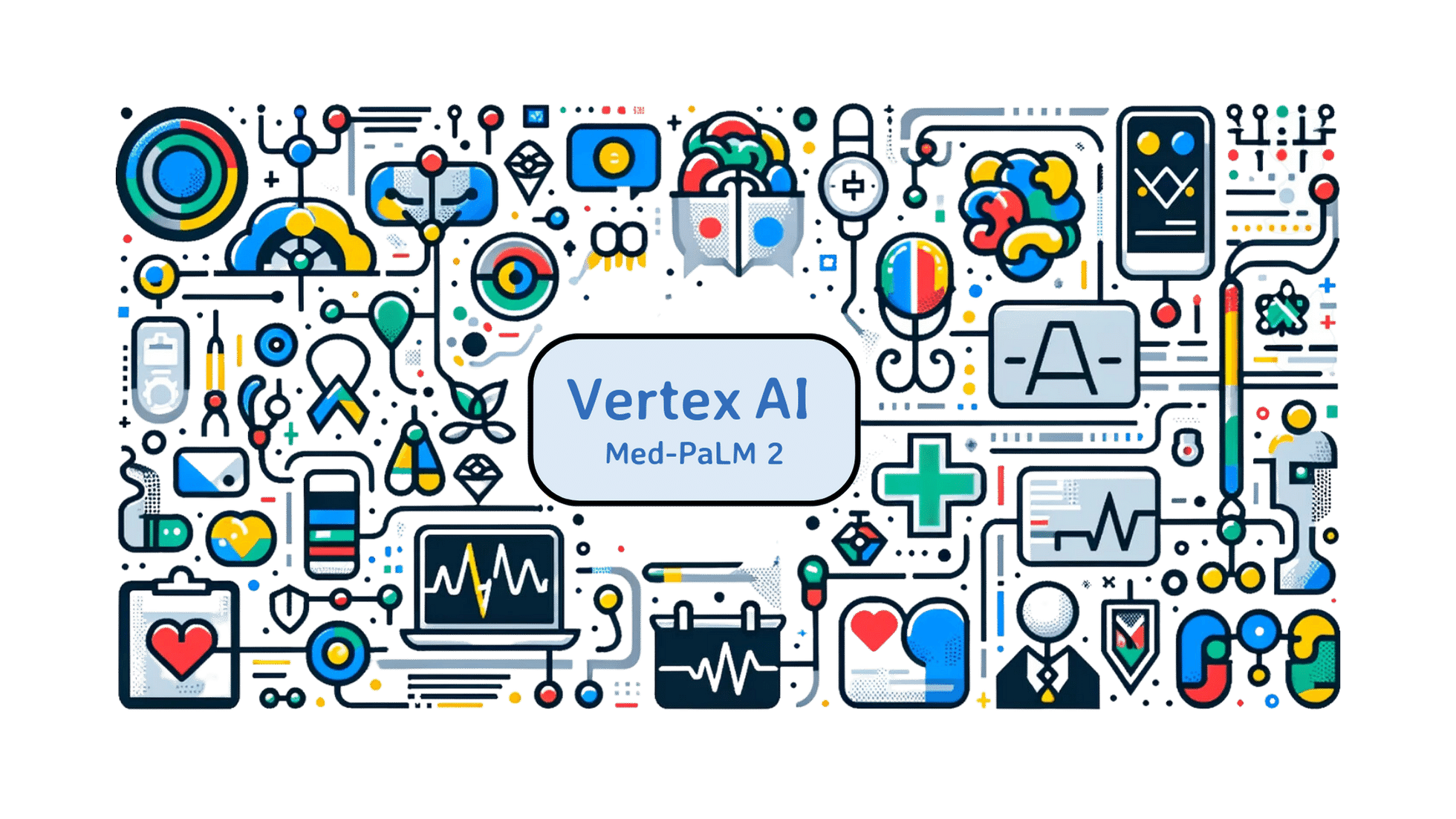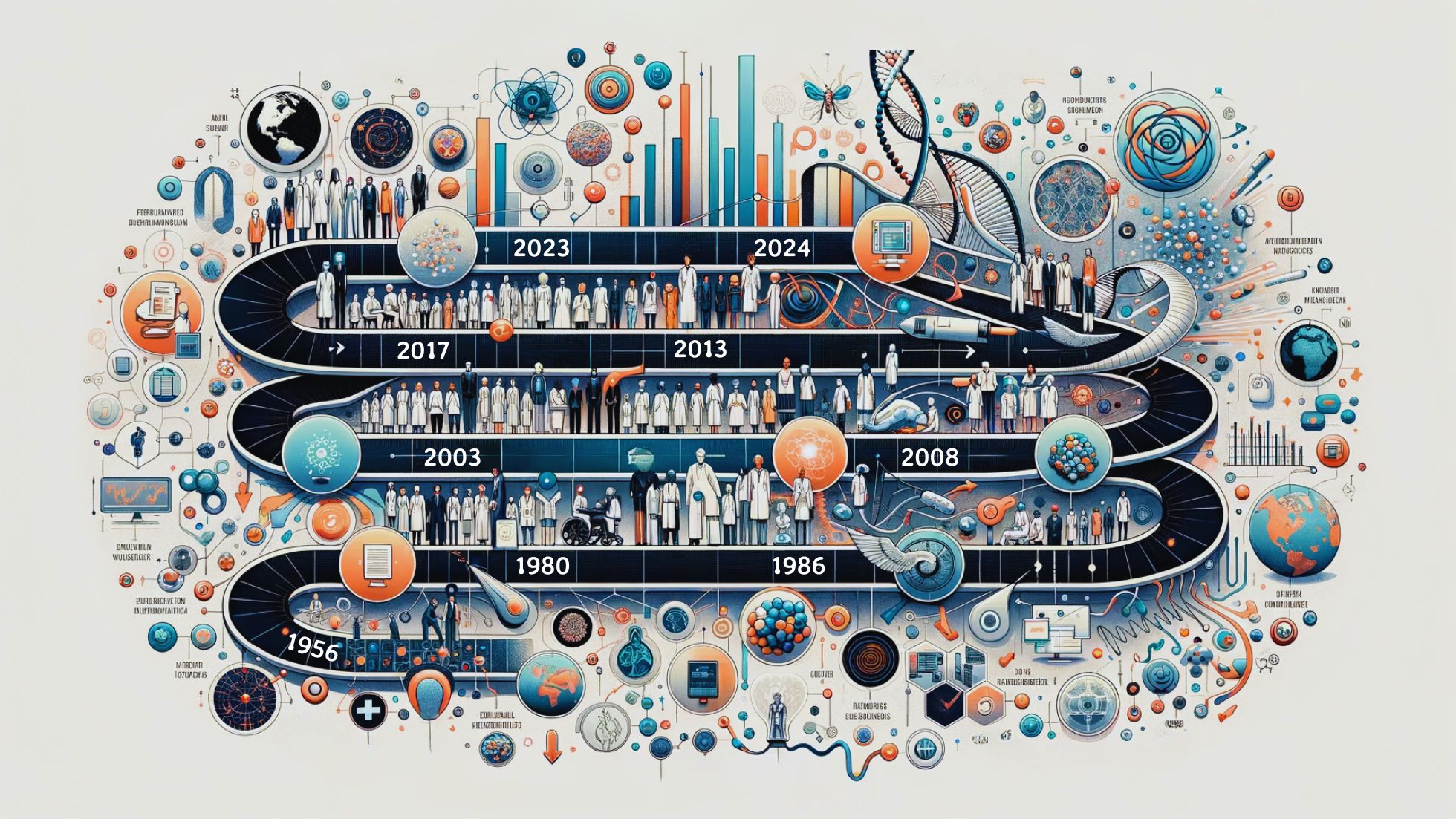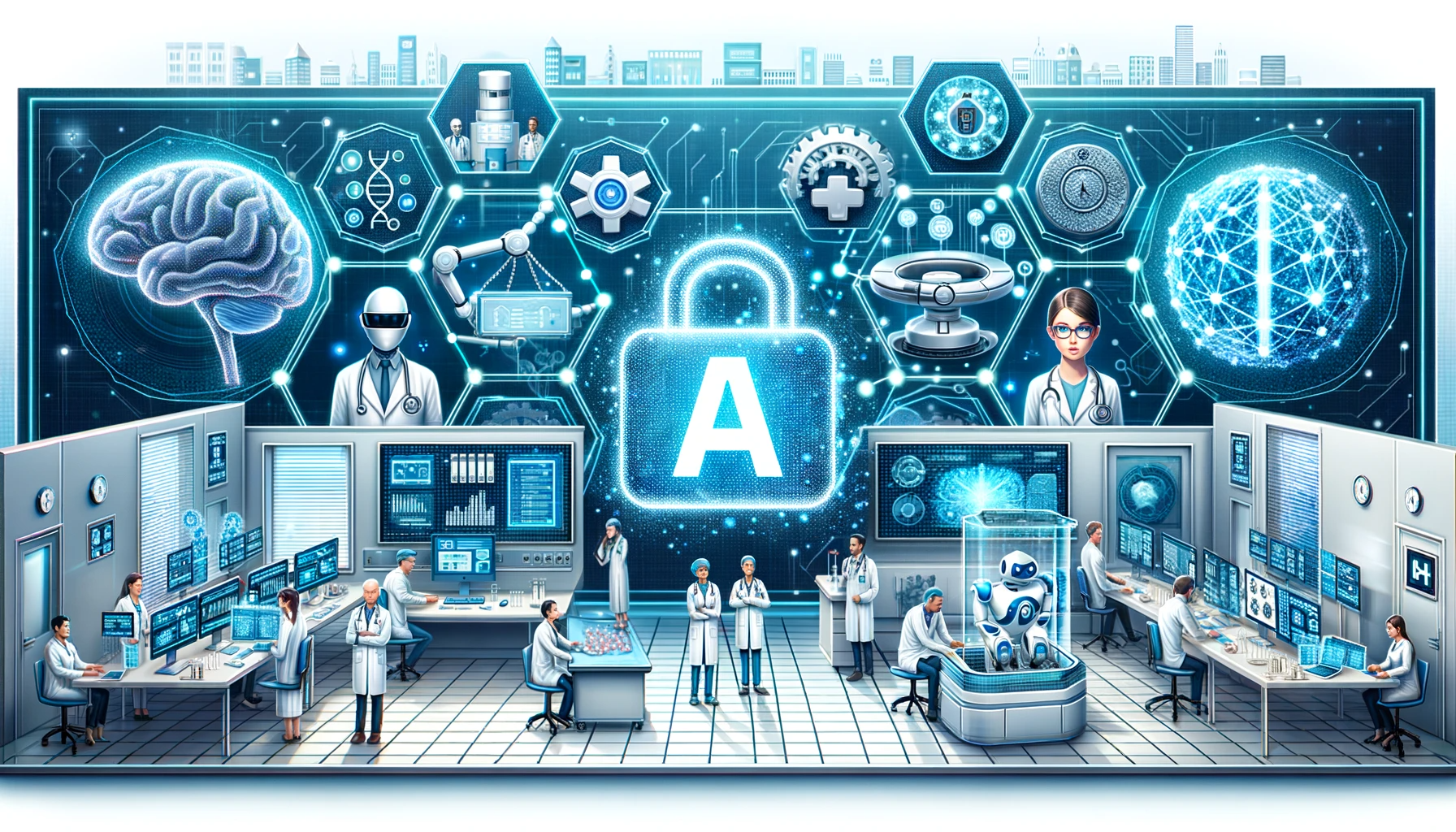In the exciting world of healthcare innovation, Large Language Models (LLMs) like Med-PaLM 2 emerge as fascinating protagonists with the potential to revolutionize clinical decision-making. However, even heroes have their weaknesses. As we dive into the story of Med-PaLM 2, we will uncover its thrilling potential, the lurking dangers, and the quest for a roadmap that navigates through the challenges towards a horizon of safe and effective healthcare solutions.
The Advent of Med-PaLM 2
In a realm where data overload and fragmented information cloud the judgement of healthcare champions, Med-PaLM 2 arises as a beacon of hope. Its ability to dissect vast seas of data to extract meaningful insights can be the sword in the stone for many healthcare practitioners. Yet, every boon comes with its set of challenges.
Introduction to Vertex AI and Med-PaLM 2
- Vertex AI: A powerful engine that empowers organizations to create customized AI-driven search tools for their clients, revolutionizing data analysis and interpretation.
- Med-PaLM 2: An innovative AI framework that harnesses the capabilities of Google's Large Language Models (LLMs) to accurately address medical queries.
The integration of Vertex AI and Med-PaLM 2 enables comprehensive searches through patient data, including valuable clinical resources such as FHIR data and clinical annotations. This seamless synergy allows for the retrieval of patient-centric medical information alongside general medical inquiries, enhancing the user experience with prompt and accurate responses. A notable aspect of this integration is its compliance with HIPAA regulations, ensuring the utmost protection of sensitive healthcare data. Moreover, the integration with Google Cloud's Healthcare API, Healthcare Data Engine, and Care Studio pilot product represents a significant advancement towards a comprehensive healthcare data management solution. The innovative capabilities of these tools provide a practical solution to the growing workforce shortage in healthcare, alleviating administrative burdens and mitigating physician burnout. By granting stakeholders access to precise clinical information, these technologies empower informed decision-making, ultimately raising the standard of care provided.
Performance Evaluation of Med-PaLM 2
A comprehensive evaluation against U.S. Medical Licensing Examination-style questions showcases a exceptional performance, surpassing an accuracy rate of 85%. This remarkable precision positions Med-PaLM 2 as a robust tool for medical professionals, instilling confidence in its ability to deliver reliable and precise information.
Furthermore, Med-PaLM 2 has undergone rigorous validation on the MedMCQA dataset, an extensive collection of medical questions and answers. The results of this validation, combined with a study published in the esteemed journal Nature, further emphasize the model's proficiency in generating in-depth responses that align with scientific consensus. This capability opens up a multitude of possibilities for real-world applications, including assisting physicians in complex diagnoses and providing evidence-based treatment recommendations.
Recognizing the enormous potential of this innovative technology, Google has taken a forward-thinking approach by offering limited testing to selected Google Cloud customers. This decision represents a progressive step towards refining and expanding the range of applications for Med-PaLM 2. The feedback and insights gained from these tests will contribute to the ongoing development and optimization of the technology. By involving customers in the testing process, Google ensures that the tool meets the specific needs and requirements of healthcare professionals, ultimately enhancing its usability and effectiveness in the field.
The Shadows of Hallucination
One of the significant challenges in the utilization of LLMs is the potential for hallucination, where the model generates false or misleading information. In the context of healthcare, this can have dire consequences, including misdiagnoses and inappropriate treatments. It is crucial to address this issue and find a solution to prevent such ominous possibilities and minimize the risk of serious medical errors.
Within the realm of healthcare AI, the shadows of hallucination cast a looming uncertainty over the landscape. The potential for LLMs to generate deceptive or inaccurate information poses a significant risk to patient safety and the integrity of medical practices. Recognizing the gravity of this challenge, the integration of Vertex AI and Med-PaLM 2 takes a proactive approach to tackle this issue head-on.
A Multi-Faceted Defense Mechanism
To combat hallucinations, an innovative multi-faceted defense mechanism has been meticulously designed. This comprehensive solution encompasses a series of safeguards and measures aimed at ensuring the accuracy and reliability of AI-generated responses.
- Rigorous Training and Validation: Med-PaLM 2 undergoes extensive training and validation processes, utilizing a diverse array of medical datasets and expert annotations. By exposing the model to a wide range of medical scenarios, it becomes adept at distinguishing between accurate and misleading information, minimizing the risk of hallucination.
- Continuous Monitoring and Feedback Loop: The integration of Vertex AI and Med-PaLM 2 enables continuous monitoring of AI-generated responses. Feedback from healthcare professionals and users is actively sought and incorporated into the model's ongoing refinement process. This iterative feedback loop ensures that any potential instances of hallucination are swiftly identified and rectified.
- Explainability and Transparency: Transparency and explainability are paramount in addressing the shadows of hallucination. Med-PaLM 2 is equipped with mechanisms to provide detailed explanations for its responses, allowing healthcare providers to understand the underlying reasoning and identify any potential biases or inaccuracies. This transparent approach empowers users to make informed decisions and instills confidence in the reliability of the generated information.
- Collaborative Framework: The fight against hallucination requires a collaborative effort involving AI developers, healthcare professionals, and regulatory bodies. By fostering an open dialogue and information-sharing, the integration of Vertex AI and Med-PaLM 2 establishes a collaborative framework that promotes accountability, ensures adherence to best practices, and minimizes the risk of hallucination.
Through the implementation of this multi-faceted defense mechanism, the shadows of hallucination are gradually dispelled, giving rise to a new dawn in healthcare AI. The integration of Vertex AI and Med-PaLM 2 paves the way for safe, reliable, and trustworthy AI-driven healthcare solutions. As healthcare professionals and patients navigate the vast landscape of medical information, they can do so with confidence, knowing that the risk of hallucination has been minimized through cutting-edge technology and a commitment to excellence.
The Enigma of General LLMs
The journey of Med-PaLM 2 is set against the backdrop of the enigmatic nature of general LLMs. These language models possess an unparalleled wealth of knowledge, yet their true understanding of complex medical concepts remains elusive. They possess the ability to process vast amounts of data and generate responses, but their inherent biases and lack of deep comprehension cast a shadow of uncertainty over their reliability. It is as if their wisdom is locked within a "black-box", leaving healthcare providers in a realm of ambiguity and doubt.
By acknowledging the limitations of general LLMs and actively working towards transparency, Med-PaLM 2 and Vertex AI pave the way for a new era in healthcare AI. Through rigorous training, ongoing validation, and a collaborative framework, these innovative technologies strive to unlock the true potential of LLMs while minimizing the risks associated with their inherent biases and limitations. The commitment to transparency and explainability empowers healthcare providers to navigate the realm of AI-driven healthcare solutions with confidence, knowing that the mysteries of LLMs are being unraveled and harnessed for the benefit of patient care.
The Roadmap to Redemption
As the clouds of uncertainty loom, the narrative takes a turn towards hope with a roadmap aimed at de-risking Med-PaLM 2. The roadmap, woven with threads of rigorous validation, continuous monitoring, and a collaborative framework, presents a path of promise. The integration of Med-PaLM 2 with other diagnostic tools, fostering a realm of collaboration among AI developers, healthcare warriors, and the guardians of regulation, heralds a dawn of safer and more effective healthcare solutions.
As we explore Med-PaLM 2, it's clear that it holds great potential to enhance clinical decision-making. While we acknowledge the challenges it presents, collaborative efforts, validation, and education offer hope in de-risking Med-PaLM 2. This game-changing technology has the ability to transform healthcare by providing physicians with valuable insights, accurate responses, and ongoing improvements. The integration with Vertex AI proactively addresses the issue of hallucination, ensuring reliable and transparent AI-generated solutions. By embracing this paradigm shift, the healthcare industry can confidently leverage the power of AI while prioritizing patient well-being and maintaining high standards of care.
The recent unveiling at HLTH 2023 by Google introduces a fresh wave of generative AI capabilities within its Vertex AI platform specifically tailored for health and life sciences sectors. The key highlights include enhanced patient data search, integration with Med-PaLM 2 for precise medical query resolution, and HIPAA compliant features, showcasing a promising avenue towards alleviating healthcare workforce deficits and promoting informed clinical decision-making. This article delineates these developments, emphasizing the various approaches and trending dynamics in the realm of generative AI in healthcare.
The Struggle with Regional data
European companies often face unique regulatory frameworks and cultural nuances that need to be taken into account. By having regional instances of data, European pharma and healthcare companies can ensure that the generated information aligns with local practices, guidelines, and regulations, ultimately enhancing the usability and effectiveness of AI-driven solutions in the European context. This regional approach fosters trust and confidence among healthcare professionals and patients, as it demonstrates a commitment to understanding and addressing the specific challenges and needs of the European healthcare landscape.
Important Update: For those seeking a regional instance, it's important to note that Google Cloud utilizes regions to determine the physical location of computer resources. When it comes to the widely accessible Generative AI functions on Vertex AI, Google Cloud ensures that customer data is stored exclusively in the region of your choice: Read more ... https://cloud.google.com/vertex-ai/docs/generative-ai/learn/locations-genai
Conclusion
The continual enhancements in generative AI, as demonstrated by Google’s Vertex AI platform, underscore the potential for AI to revolutionize healthcare data management, clinical decision support, and overall quality of care. The collaborative integration with Med-PaLM 2 further augments this trajectory, marking a significant milestone in the journey towards AI-driven healthcare solutions.




